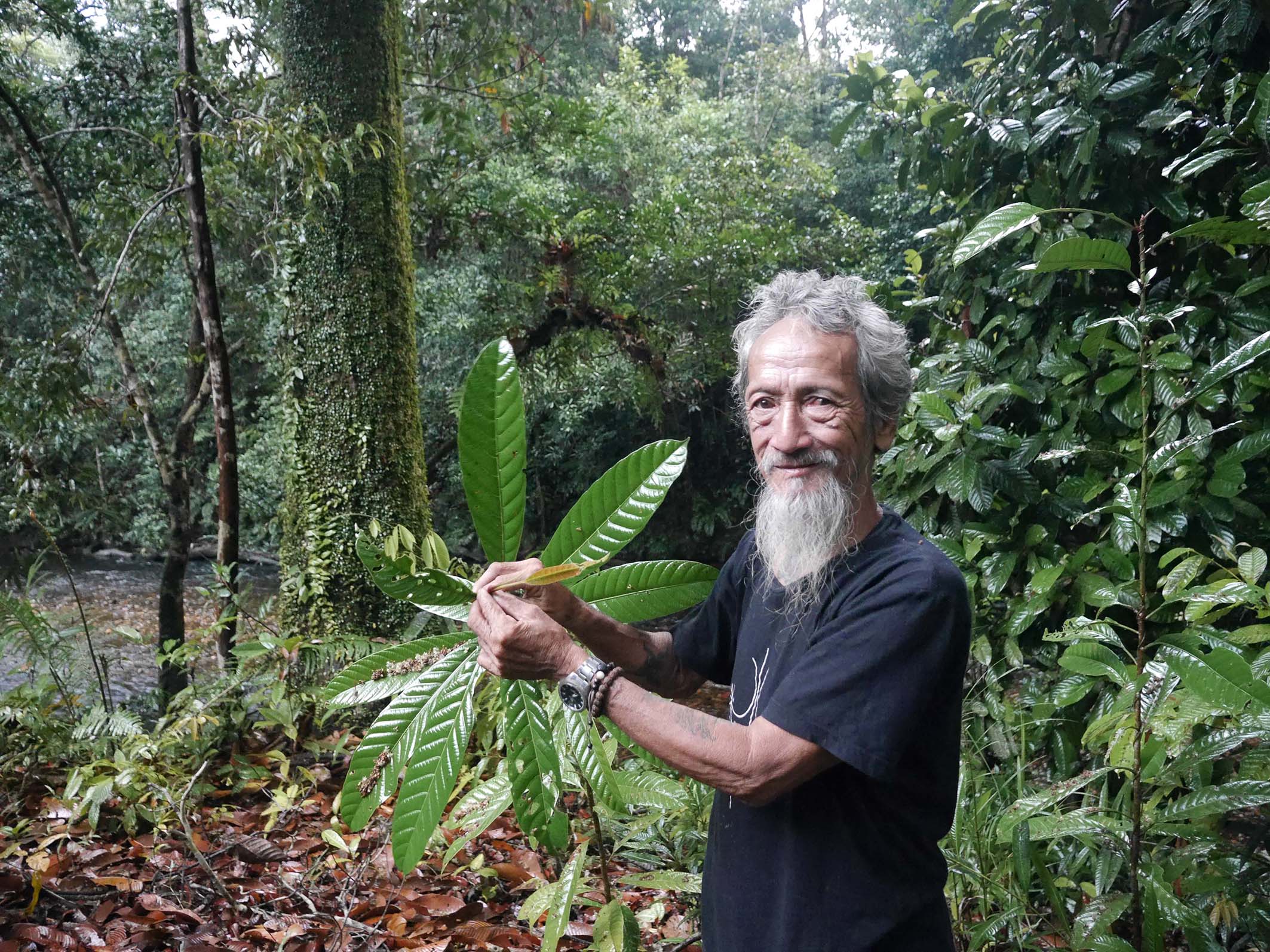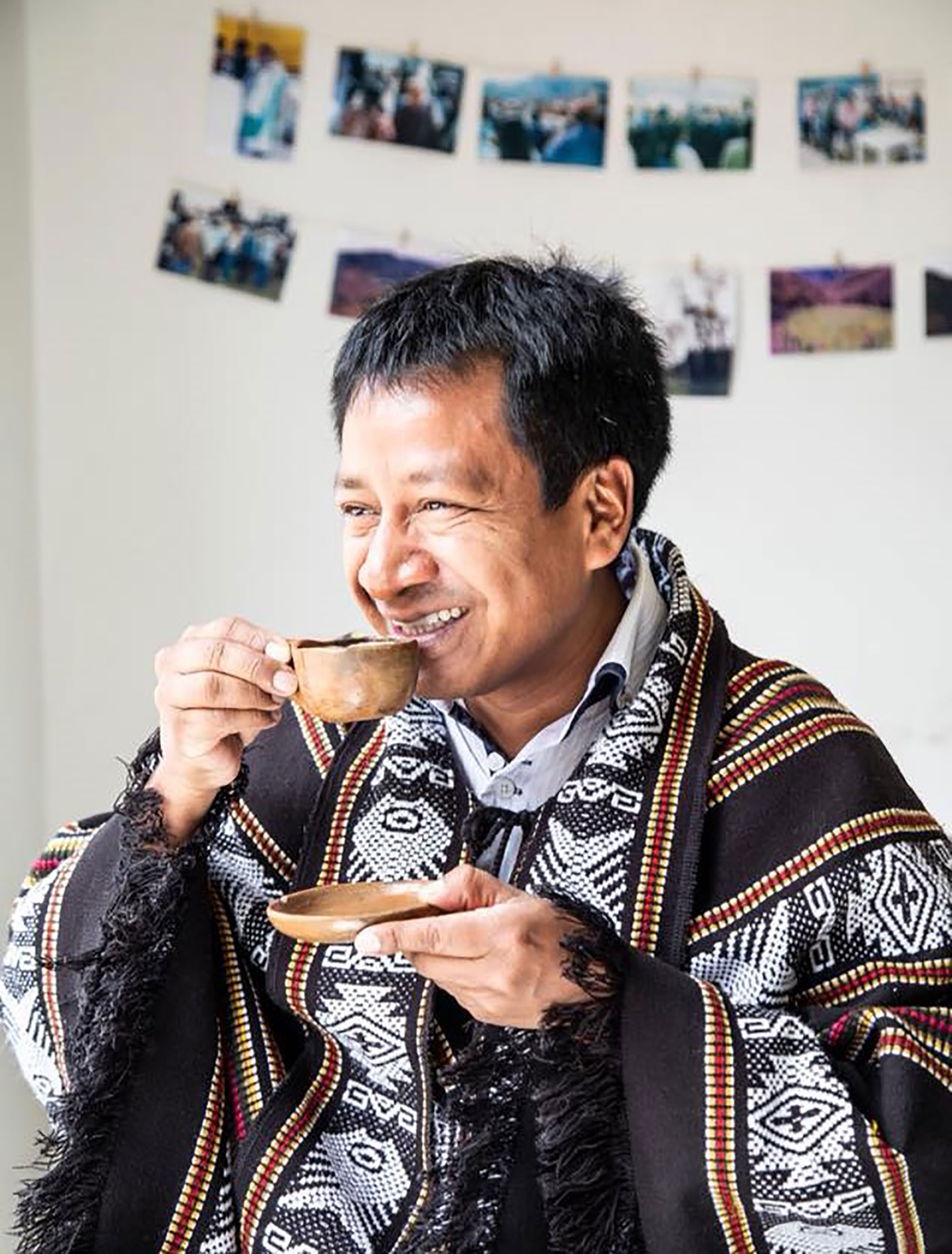Equator Prize winners recognized for making a difference
August 1, 2023

Bandi “Apai Janggut,” is the leader of the Indigenous community of Dayak Iban in Sungai Utik Longhouse which has been the leading voice for recognition of community land rights, and for resistance to illegal logging and palm oil production.
Three events give us hope that Indigenous voices are finally being heard!
The major issues that Indigenous communities are striving for worldwide—recognition of Indigenous land rights and traditional knowledge, acceleration of ecosystem protection and restoration, and the right to a healthy environment for future generations—are finally beginning to be recognized as essential not only to the future of Indigenous communities, but for the future of our planet and for all of humanity.
First was the news that for the first time in its history, the UN Human Rights Office of the High Commissioner was awarding its prestigious UN Human Rights Prize to a global coalition of civil society organizations, Indigenous peoples, social movements and local communities.
The coalition, which included the 2010 Equator Prize winner Ejido San Crisanto, successfully convinced the United Nations General Assembly to debate, and ultimately adopt, a remarkable resolution, the “Universal Recognition of the Right to a Clean, Health and Sustainable Environment” in 2022. The resolution is remarkable in part because it signifies that our global community is starting to think in profoundly different ways about humanity and the environment.
José Inés Loria Palma is a representative of Ejido San Crisanto, which won the Equator Prize for their work on restoring mangroves to prevent floods. He had this to say about why his community signed on to the coalition: “Our small community is on the front lines of the effects of climate change. We consider our work in conserving and restoring wetlands essential for allowing our community to have a more certain future. Nature is not ours, we our part of nature, and it is our obligation to care for it to guarantee our future.”

Hernando Chindoy Chindoy, Indigenous Inga leader of the Wuasikamas Initiative in Colombia, has been awarded an honorary doctorate by the University of the Arts of London.
Second was the news of the award of Honorary Doctorate to Hernando Chindoy Chindoy, Indigenous Inga leader of the Wuasikamas Initiative in Colombia, by the University of the Arts of London. His work has focused on securing Indigenous land rights, fostering biocultural peace, and promoting traditional knowledge. In 2015, his community won the Equator Prize in recognition of the local governance model, which is based on a shared vision of justice, collective action, ecosystem restoration, peace and sustainable livelihoods. Dr Chindoy was also instrumental in the creation of Inga Panamazonic AWAI Biocultural University, an effort to catalyze understanding of Indigenous biocultural knowledge. It is heartening to see the recognition of Dr Chindoy’s work on Indigenous rights and knowledge included among a dozen other talented recipients, and it is equally heartening to see the work of Indigenous biocultural knowledge taken seriously as a critical body of work.
Third was the news that the prestigious Gulbenkian Prize for Humanity, a prize that recognizes outstanding contributions to climate action and climate solutions, especially nature-based solutions, was awarded to Bandi “Apai Janggut,” leader of the Indigenous community of Dayak Iban in Sungai Utik Longhouse. For 40 years, Bandi has been the leading voice for recognition of community land rights, and for resistance to illegal logging and palm oil production. Their campaign eventually secured legal recognition and ownership of their traditional lands, protecting vast reserves of carbon. Given the profound importance of nature protection, restoration and sustainable management for mitigating and adapting to climate change, and the profound importance of Indigenous land rights in securing terrestrial carbon and safeguarding global biodiversity, the recognition of the one million euro Gulbenkian Prize is a welcome signal that Indigenous land rights matter to all of us.
For more than 20 years, the UNDP-led Equator Initiative has recognized more than 275 Indigenous and local communities for their efforts to put the protection, restoration and sustainable management of nature at the heart of their own sustainable development goals. Often described as “unsung heroes,” Equator Prize winners stand at the forefront of three of the most pressing global shifts the world needs most: recognizing the interlinkages between human and environmental well-being; recognizing traditional knowledge and recognizing the importance of Indigenous land rights for the future of the planet. Over the past week, awardees of the Equator Initiative have been featured in the news for precisely these three shifts.

 Locations
Locations